Windsor riverfront's Legacy Beacon expected to be complete fall 2024
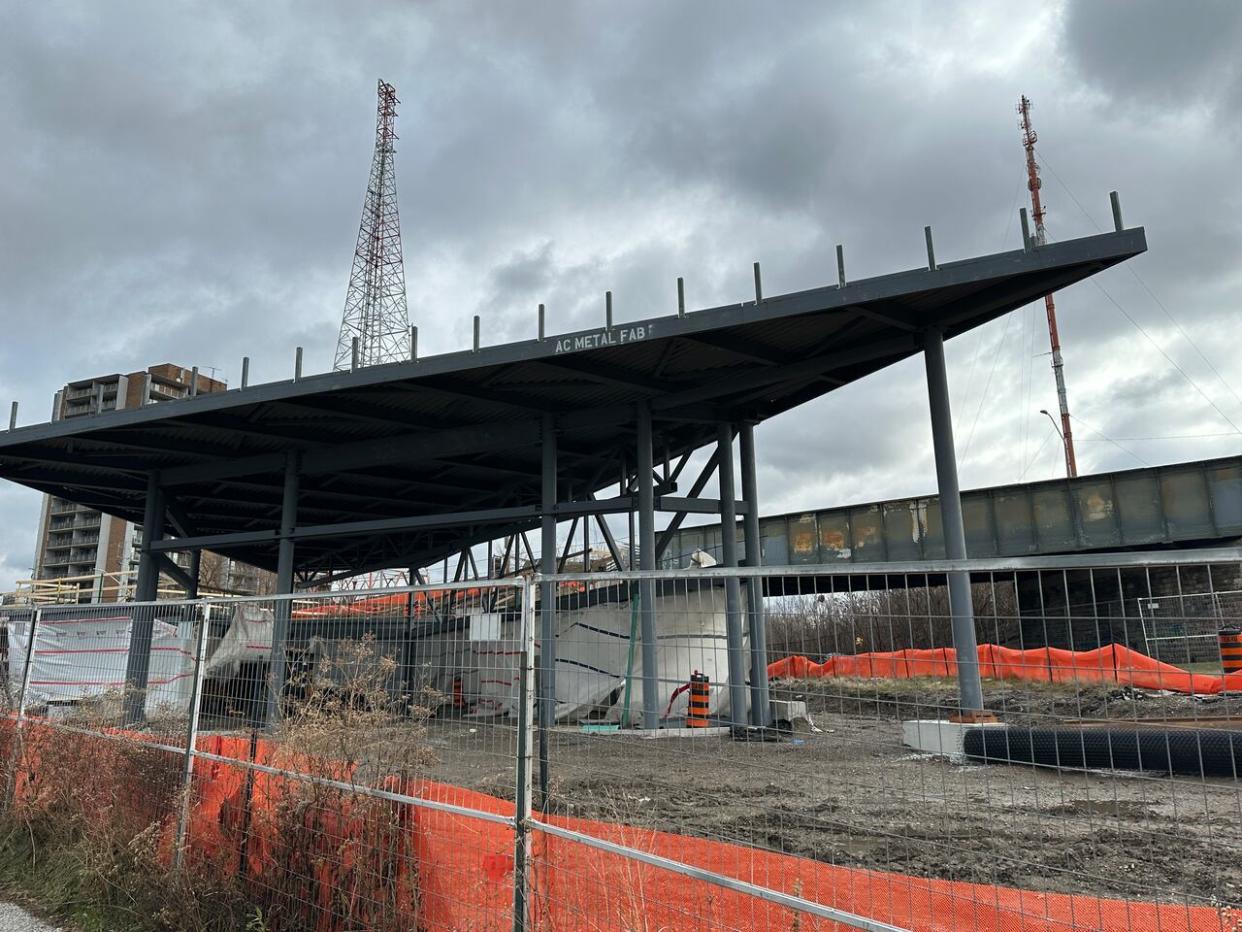
Almost seven years since the project was first approved, the Legacy Beacon is taking shape on Windsor's riverfront — and should be ready to house Streetcar No. 351 by the autumn.
"Construction is going very well, as you can see," said James Chacko, executive director of parks and facilities for the City of Windsor. "There is not only a lot of the foundation work, but some of the structural steel is up."
"It's on time, it's on budget, and we certainly expect that the Beacon will be opening later this year... Right now, we're expecting mid-fall. Construction will be completed early fall, and at that point, the streetcar will be brought down and positioned inside the Beacon."
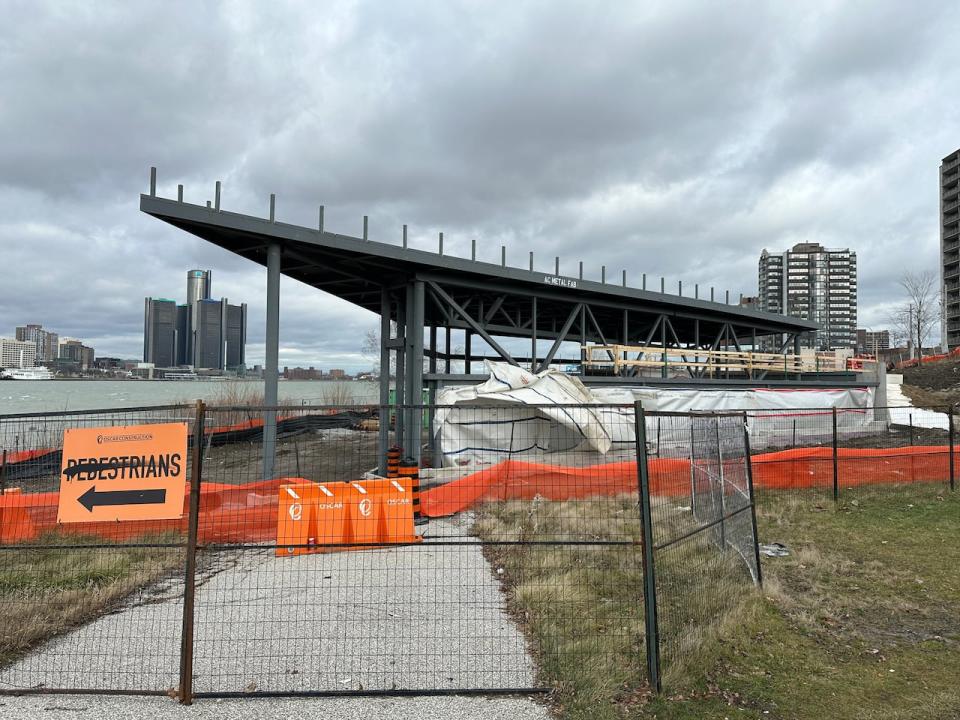
A view of the showcase structure of the Legacy Beacon project on Windsor's riverfront at Caron Avenue, January 2024. (Dalson Chen/CBC)
Work has been taking place at the site on Riverside Drive West at Caron Avenue since the start of the summer of 2023.
The completed structure will showcase an historic electric trolley that operated locally almost a century ago. Streetcar No. 351 is believed to have been built in Ohio in 1918, and purchased for Windsor in 1926.
Chacko said the city intends for all the site's features to be ready for the grand opening, including its concessions stand and sail-like shades. "The idea is... when we do the official ribbon-cutting of the space, it is fully running. We don't want to do a piecemeal opening," Chacko said.
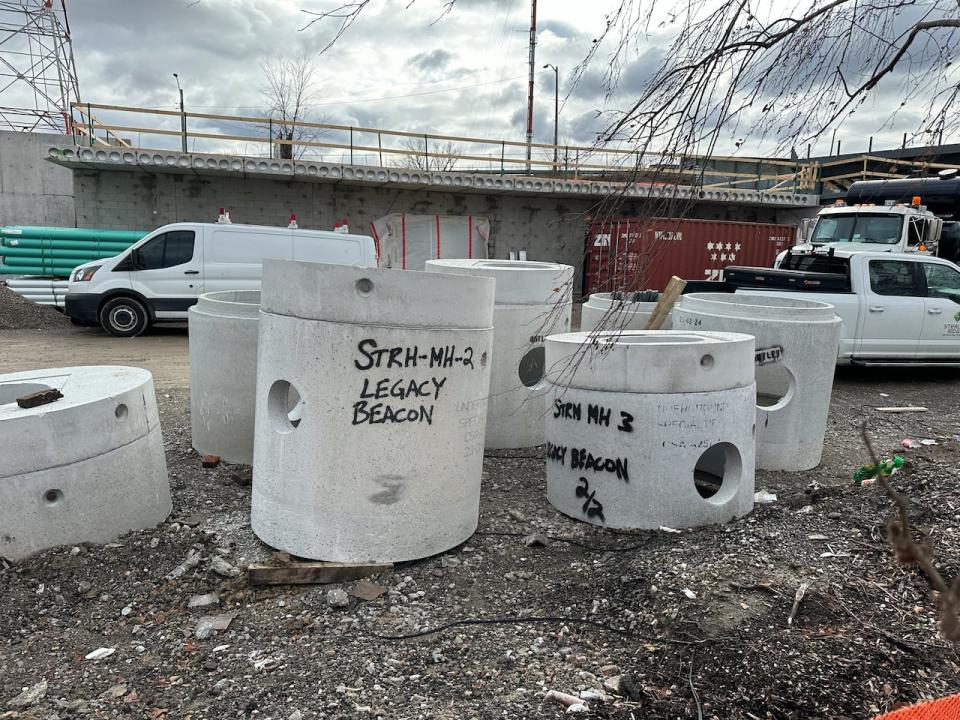
Materials at the site of the Legacy Beacon project on Windsor's riverfront at Caron Avenue, January 2024. (Dalson Chen/CBC)
The cost of the project has risen steadily since council gave it the go-ahead in October 2017.
Restoring the streetcar required an investment of around $750,000. Investigating the location and designing the site required another $840,000.
In June 2020, city council approved a total budget of $7 million for the project — then called the Celestial Beacon.
By October 2021, that budget had risen to $8.4 million.
In the summer of 2022, the city issued a request for tender on the construction contract. Four companies responded with projected figures ranging from $9.6 million to $10.9 million — 20 to 40 per cent higher than what was originally budgeted.
Oscar Construction Company Ltd. was ultimately awarded the contract in May 2023, at a negotiated figure of $9,136,682.
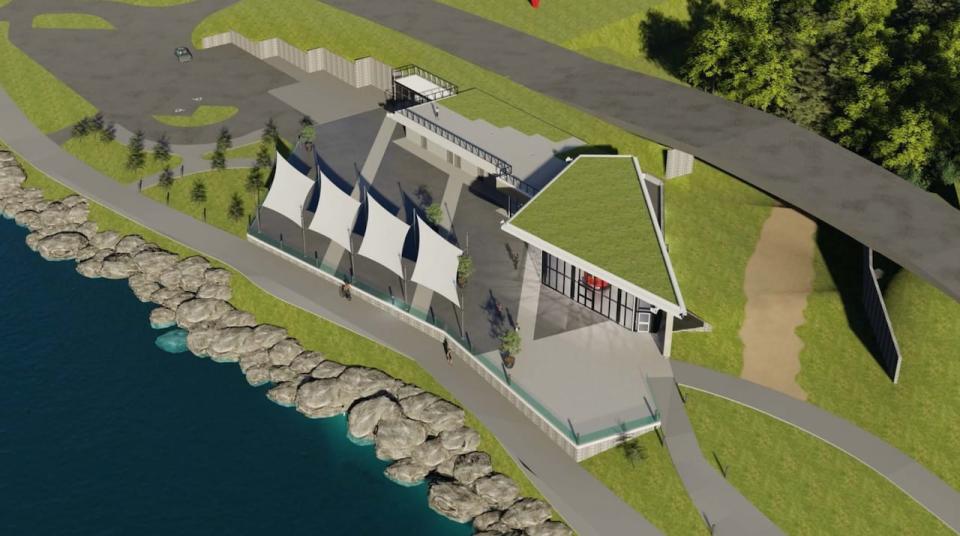
An architect's rendering of the completed Legacy Beacon site on Windsor's riverfront at Caron Avenue. (City of Windsor)
In October 2023, the city also awarded a $165,000 contract to New World Park Solutions to provide the "sail shades" for the site.
"That's a separate component," Chacko said. "It was tendered out as a separate contract, but it was within the existing construction budget. So it's not over and above."
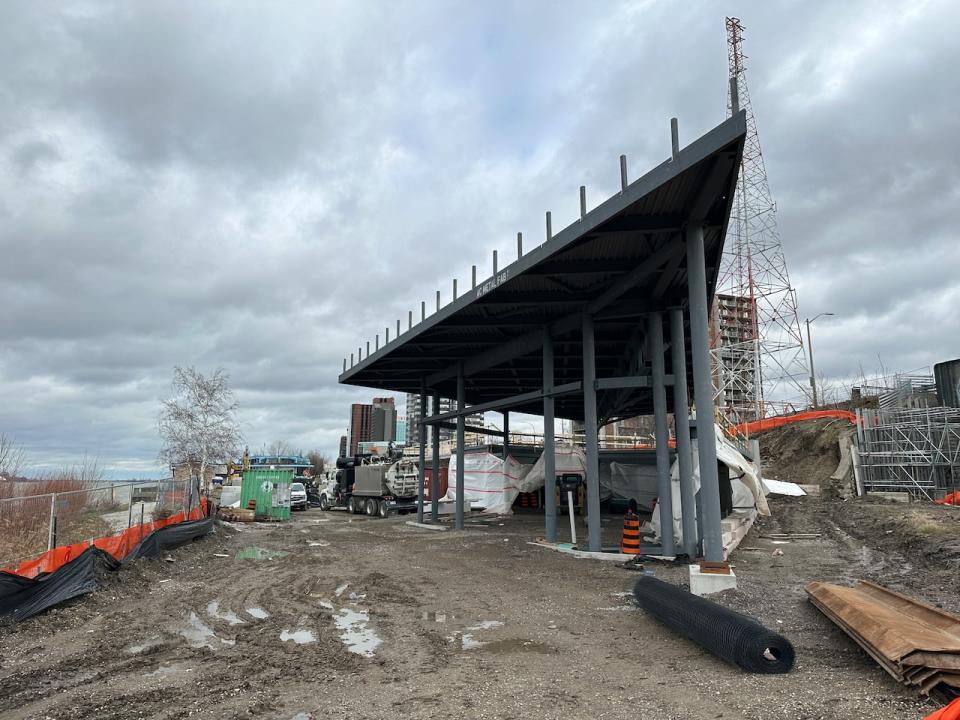
A view of the showcase structure of the Legacy Beacon site on Windsor's riverfront, January 2024. (Dalson Chen/CBC)
A report by city administration cited COVID-19's impact on the construction industry and inflationary pressures as factors in the project cost increasing.
Nevertheless, administration urged council to approve the elevated funding and move forward on the project, noting that "there is a high risk that future construction costs will continue to escalate."
Failure to proceed would mean the $750,000 spent on restoring the streetcar and the $840,000 spent on site investigation and design would become "non-recoverable monies," administration stated.
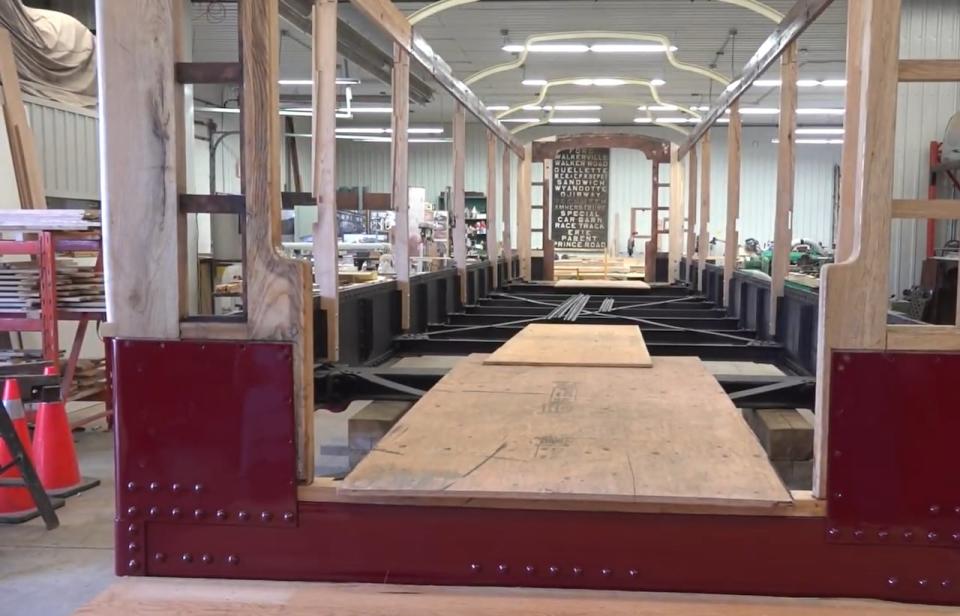
The restoration process of Streetcar No. 351 - which was operational in the 1920s in Windsor. (City of Windsor)
Ward 2 Coun. Fabio Costante, who voted against increasing funding for the project in 2023, said he would have liked the city to explore more modest options and leverage other community assets, such as housing the streetcar at the Chimczuk Museum.
"Especially in light of the fact that we weren't going to be receiving any federal grant monies to assist in the project," Costante added.
But Costante said he respects the majority decision of council, and he accepts the project is coming to fruition. "Pun intended, that streetcar has already taken off," he joked.
Asked his sense of the community's eagerness for the project's completion, Costante replied: "Frankly, I have not heard anything insofar as anticipation or excitement for it."
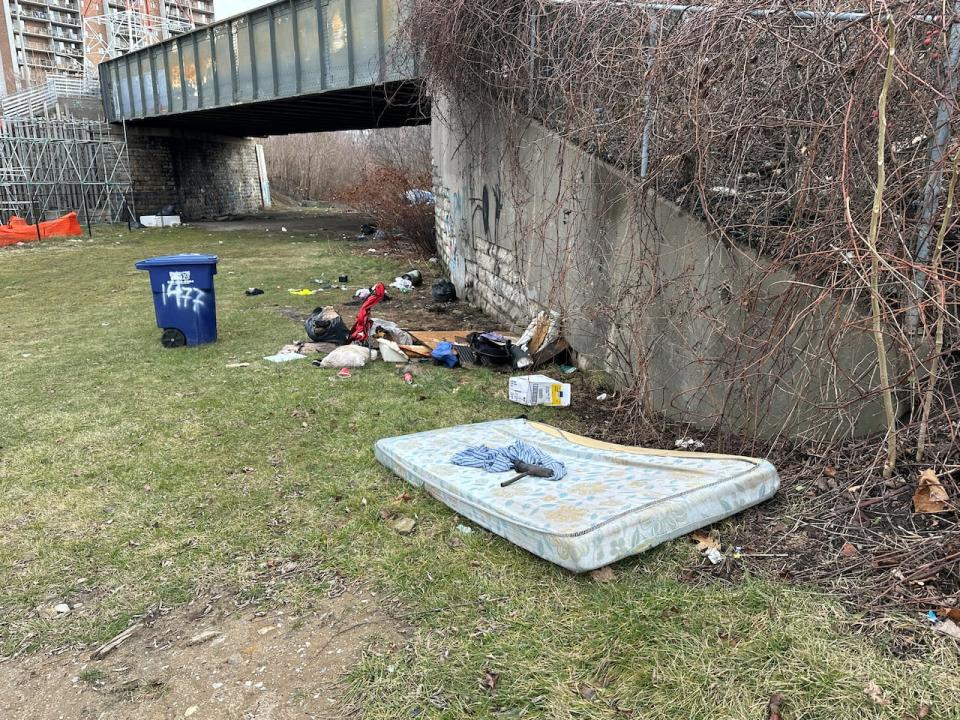
Signs of homeless people living near the Legacy Beacon construction site on Windsor's riverfront at Caron Avenue, January 2024. (Dalson Chen/CBC)
At the Legacy Beacon construction site currently, there are signs of people living nearby. Shopping carts, a mattress and discarded belongings are strewn under the overpass next to the site. A frayed tent is visible a few metres away.
Christine Wilson-Furlonger, director of Street Help, said she's aware that people who are homeless are once again living in The Cut — the ravine-like wooded area next to Caron Avenue that was once a railway section.
"We have to accept that this is the reality," Wilson-Furlonger said. "We can try to glamourize, and put all kinds of lipstick and false eyelashes on Windsor, but it's not going to make the problem prettier. And that, to me, is what these projects are all about."
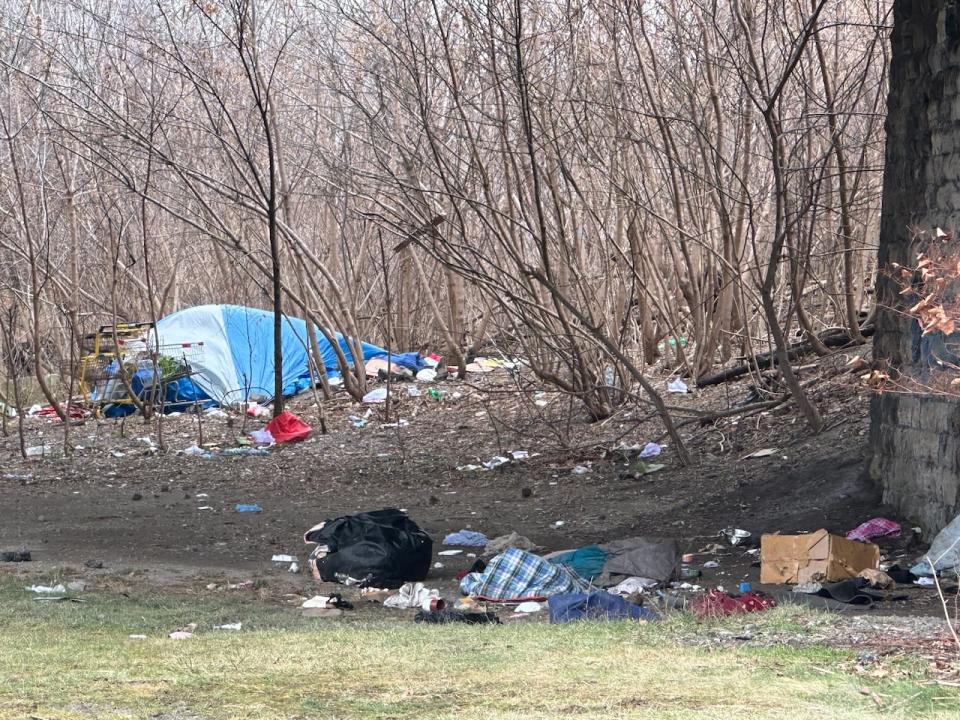
A tent, a sleeping bag, garbage, and other signs of homeless living near the Legacy Beacon construction site on Windsor's riverfront at Caron Avenue. (Dalson Chen/CBC)


